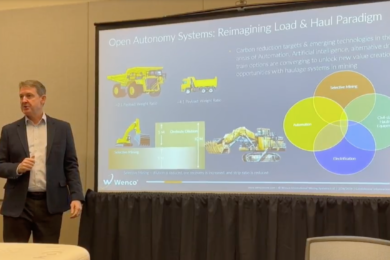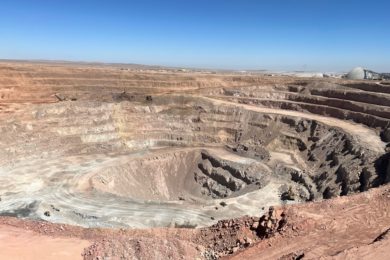Demand for high grade lithium used in rechargeable batteries could soar by as much as 150% over the next six years if projections for electric vehicle sales are correct, says President and CEO of Canada Lithium Corp, Peter Secker. “As electric vehicles start to ramp up over the next two to three years, there’s going to be significant demand that we believe can’t be met by existing producers,” he said. And this is where he feels the company’s Quebec Lithium project, which could be producing more than 19,000 t/y of high grade lithium carbonate starting in 2012, will benefit.
If the prefeasibility study figures released last week are realised, it would make Canada Lithium the third-largest lithium producer in the world, with the only major lithium mine in North America, Secker said. Currently about 65% of the world’s lithium carbonate is produced in Chile and Argentina and 30% is produced in Australia.
A study by the Massachusetts Institute of Technology predicted 10 million electric vehicles will be sold globally by 2016. Demand for the low-emission vehicles will be propelled by government investments, rising gas prices and consumer demand for environmentally friendly products.
“That significant ramp-up in production means there’s going to be a significant increase in demand,” Secker said in an interview on Monday. “Current demand is about 100,000 t/y of lithium carbonate, and if you believe the 10 million number, then supply will have to increase to about 200,000 to 250,000 t/y to meet that.”
Quebec Lithium’s operating costs are expected to be under $2,800/t, which would put the mine in the second-highest quartile of producers. The mine would cost the company about $148 million to develop. Secker said there are very few new lithium mines slated to come on stream, and none of these will reach production as quickly as Quebec Lithium.
The Quebec Lithium project, which used to be known as the Sullivan mine, produced lithium between 1955 and 1965 when the metal was primarily used in the production of ceramics and glass. Because of this, the project has existing road, rail and power infrastructure, which will cut down on the time and money it will take to get the mine producing again.
Secker said the mine is “extremely viable” at the current price of around $2.90/Ib for the highest-grade lithium. “Anything on top of that would be a bonus to us,” he said.
Canada Lithium says preliminary discussions with North American end users indicate a potential market for up to 50,000 t/y of lithium. An upbeat outlook for electric vehicle sales has been boosting other Canadian companies as well. Shares in lithium-ion battery maker Electrovaya have soared more than tripled this month after the company announced it will supply Chrysler with batteries for a line of demonstration electric vehicles. This followed news that former Chrysler President Tom LaSorda will take on an advisory role with the company and join its board of directors.
Governments around the world are looking to boost the troubled auto industry and reduce vehicle emissions by investing in electric-vehicle technology. In the US, President Barack Obama has said he wants one million electric vehicles on the road by 2015 and has invested billions of dollars in General Motors, Chrysler, Ford and Nissan to help accomplish that goal.









